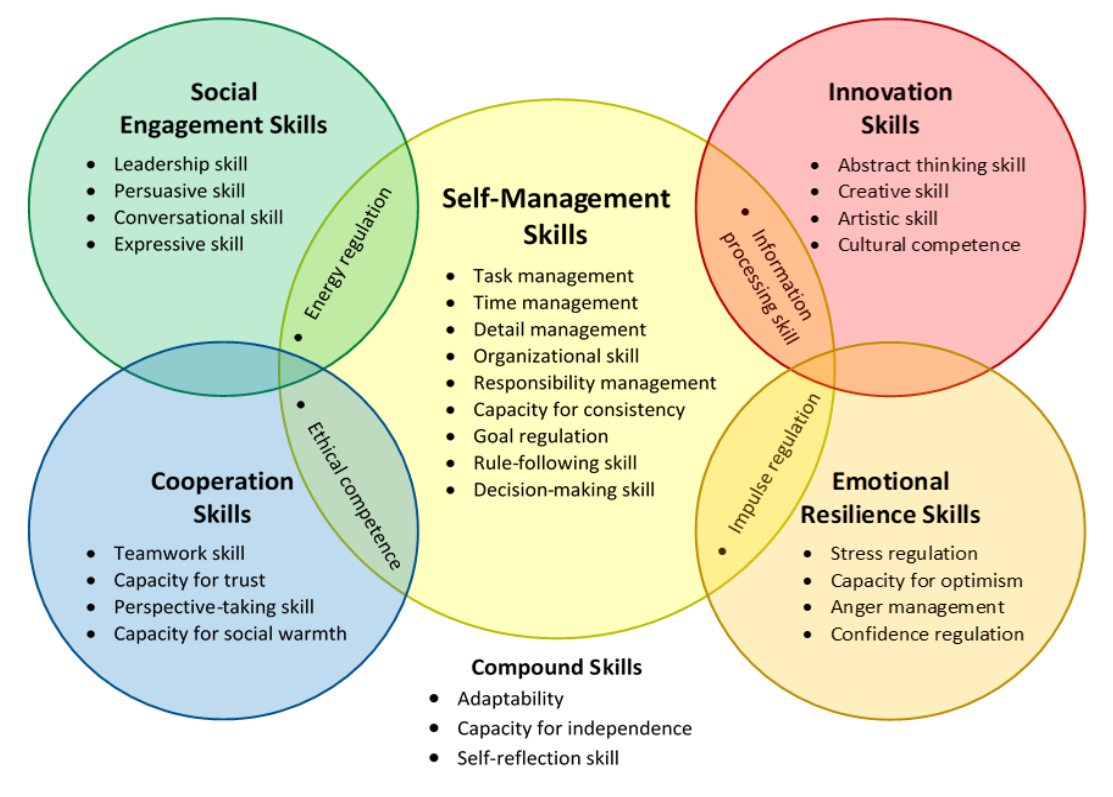|
|
What Are SEB Skills? |
|
Social, emotional, and behavioral skills (SEB skills) are capacities that people use to maintain their social relationships, regulate their emotions, manage their goals, and learn from experience. Like other kinds of skills, we believe that SEB skills can be learned, practiced, measured, and improved over time.
There are many specific SEB skills, known as skill facets. Most of these facets can be organized into five major skill domains. The figure below shows how the 32 skill facets measured by the Behavioral, Emotional, and Social Skills Inventory (BESSI) can be organized into these five skill domains:
There are many specific SEB skills, known as skill facets. Most of these facets can be organized into five major skill domains. The figure below shows how the 32 skill facets measured by the Behavioral, Emotional, and Social Skills Inventory (BESSI) can be organized into these five skill domains:
Click on the buttons below to see how these skills are defined.
|
|
|
Why Do SEB SKILLS MATTER? |
|
Every person has both strengths and weaknesses. Everyone has skills that can help them succeed in life. For example, research on SEB skills shows that Self-Management Skills can help students stay engaged and earn higher grades. Social Engagement and Cooperation Skills can help people maintain satisfying relationships and attain higher social status. Emotional Resilience Skills can help people maintain a sense of well-being and satisfaction with life. And Innovation Skills can help people pursue their interests in the arts and sciences.
Everyone also has skills that they’d like to develop over time. Things that they struggle with now, but might want to spend time and effort on improving. Therefore, models and measures of SEB skills can help people identify their current strengths and weaknesses, and also help them think about ways to develop new skills or build on existing ones.
Everyone also has skills that they’d like to develop over time. Things that they struggle with now, but might want to spend time and effort on improving. Therefore, models and measures of SEB skills can help people identify their current strengths and weaknesses, and also help them think about ways to develop new skills or build on existing ones.
